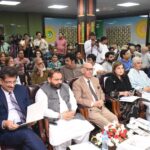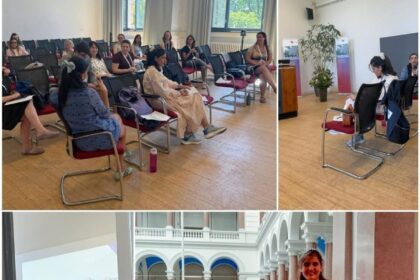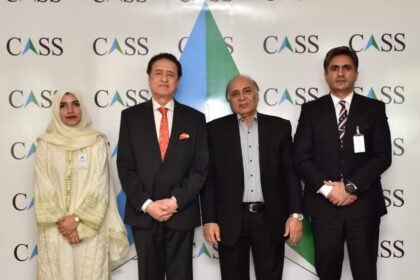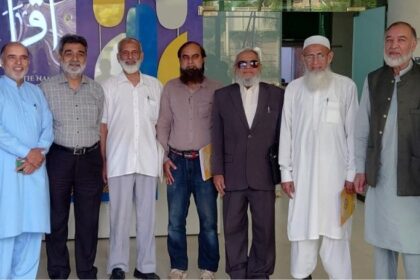**Pakistan and Kenya Aim to Strengthen Agricultural and Trade Ties**
Pakistan and Kenya have agreed to deepen their collaboration in agriculture and trade, following a high-level meeting between Pakistan’s Federal Minister for National Food Security and Research, Rana Tanveer Hussain, and Kenya’s High Commissioner to Pakistan, Lt. Gen. (Rtd.) Peter Mbogo Njiru. Both sides identified opportunities to expand bilateral cooperation, diversify trade in agri-based products, and enhance institutional partnerships in research and innovation.
At the meeting, Minister Hussain welcomed the Kenyan High Commissioner and emphasized Pakistan’s commitment to furthering agricultural relations. Currently, bilateral trade between the two countries stands at about USD 1 billion, with Pakistan primarily exporting rice, cotton, and seeds, and importing tea and other commodities valued at approximately USD 350 million. Both parties recognized the potential to broaden the trade basket, particularly in the agricultural sector.
Demonstrating Kenya’s keen interest in institutional collaboration, High Commissioner Njiru announced plans to visit the Pakistan Agricultural Research Council (PARC) to explore joint research initiatives and agricultural innovation. Minister Hussain highlighted PARC’s nationwide network of 44 research institutes and expressed Pakistan’s willingness to cooperate with Kenya in areas such as seed development, livestock, cotton production, and agricultural mechanization.
Discussions also focused on the upcoming Pakistan-Kenya Joint Trade Committee (JTC) meeting in Islamabad, where a Memorandum of Understanding (MoU) on agricultural and trade cooperation is anticipated to be finalized. Minister Hussain noted that this meeting would provide a vital platform to institutionalize collaboration and facilitate agreements aimed at expanding agricultural trade and the exchange of knowledge.
Kenya expressed interest in exporting more products, including avocados, mangoes, flowers, and tea to Pakistan. Minister Hussain showed particular interest in importing avocados, citing their quality and competitive pricing, and reaffirmed Pakistan’s openness to diversifying imports from Kenya, leveraging the complementarity of both countries’ agricultural sectors.
The role of the Pakistani diaspora in Kenya, estimated at 2,000 to 3,000 individuals, was acknowledged for their contributions in hospitality, banking, the automobile industry, and development projects, particularly through organizations like the Aga Khan Foundation. Minister Hussain stressed the significance of these people-to-people connections in reinforcing bilateral relations.
Both nations also maintain institutional links, such as Kenya’s collaborations with Pakistan’s National Agriculture Foundation and the National Textile University in Faisalabad. The Minister encouraged building on these relationships through joint ventures, research partnerships, and technology transfer in textiles, leather, and agricultural processing.
The High Commissioner expressed gratitude for Pakistan’s longstanding support, particularly in defense training, noting that many Kenyan Army and Navy officers have been trained at premier Pakistani institutions. He also thanked Minister Hussain for attending Kenya’s Independence Day celebrations, acknowledging it as a sign of goodwill and mutual respect.
Concluding the meeting, both sides reaffirmed their intention to revitalize the long-standing diplomatic relationship—established in 1964—by intensifying institutional ties and expanding sectoral cooperation. The Ministry of National Food Security and Research reiterated its commitment to advancing Pakistan’s agricultural diplomacy and fostering international partnerships under the leadership of Minister Rana Tanveer Hussain.











